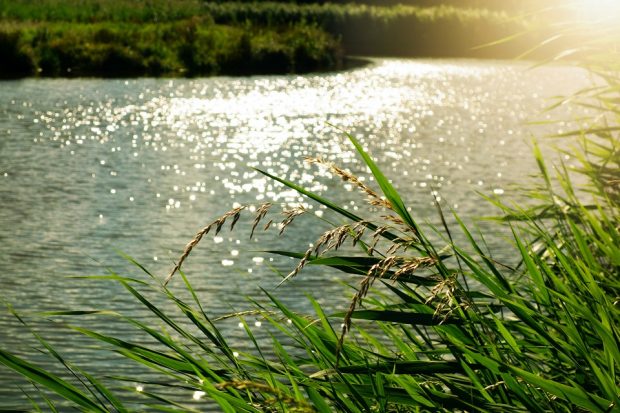
By Anna Bond, Green Finance Manager
This weekend the UK and UN will host the Climate Ambition Summit to mark 5 years since the Paris Agreement by bringing countries together (virtually) to talk about the future action needed to tackle climate change. One of the topics being discussed is climate finance.
Before I joined the national green finance team I was a Catchment Director, working with operational teams to attract more investment from a wide range of partners to improve the environment across a whole river catchment in Lancashire. From working with the Local Enterprise Partnership to grow skills and investment in the emerging low carbon technology market to working with public health directors to make the outdoor, natural environment more accessible to local communities to help overcome physical inactivity, obesity and NHS costs through green prescribing; I’ve seen first-hand the benefits of collaborating with a range of partners to bring in a mix of funding and ensure the environment is improved for local communities.
Given the scale of the environmental challenges ahead we must be ambitious and increase efforts to protect the environment. To scale up our response to the big environmental challenges we face green finance and innovative funding will be crucial to attract more investment to get more frontline projects off the ground.
Today Defra and the National Heritage Lottery Fund have announced the Green Recovery Challenge Fund has awarded 68 projects grants between £62k and £3.8 million to nature-based projects which create and retain jobs. The Environment Agency has provided support and it is great to see a variety of environmental projects across the country receiving funding for planting trees, natural flood risk management, restoring peatlands, pollinator pathways, and to connecting people with green spaces, forests and protected landscapes.
The Green Recovery Challenge Fund is a key part of Prime Minister’s 10 Point Plan to kick-start nature recovery and tackle climate change.
The Prime Minister’s recent 10 Point Plan concluded with a point on innovation and finance. To deliver the government’s bold ambitions for the environment we will want to scale up our collective efforts and more finance is essential to this. There is real momentum with central government seeing the importance of green investment and innovative funding models to attract much more money to the environment. Combining capital from different sources will drive green economic recovery and resilience.
We have also seen commitment from the Chancellor in his announcement of a Green Gilt - a fantastic step to fund the country’s net zero ambitions and unlock a wall of investment across the UK which shows are serious about building a greener and more sustainable economy.
We know the scale of environmental challenges we face and the government’s ambition on this is clear. The Environment Agency can help by both developing green finance, identifying projects worth investing in and sometimes working with partners to deliver projects.
We are working to help the private sector scale up activities that help the natural world. Earlier this year we launched a programme financing nature-based solutions with Defra, the Esmée Fairbairn Foundation and Triodos Bank. Attracting more private investment will deliver local benefits including reducing flood risk, creating new wetlands, and restoring peatland. It will also demonstrate the commercial viability of investing in nature and catalyse the scaling up of further similar projects around the world.
We’re committed to using our expertise in green finance to develop funding mechanisms that our partners can use to improve the environment. A great example of green finance in action is our friends over at the Ribble Trust who recently announced investment from Brew Dog to plant trees. This provides health and wellbeing benefits while also offsetting carbon. The EA is open to sharing our expertise with partners and will develop green finance further to support more schemes like this.
In early 2021 the Environment Agency will be launching the government’s Investment Readiness Fund (IRF) and welcoming applications. The IRF will support the development of natural environment projects that can generate revenue from ecosystem services and attract repayable investment. These projects will deliver benefits for local communities, the environment and attract even more investment for green projects in future.
We will continue to develop strong relationships with eNGOs who are vital partners for us on a large number of our environmental improvement projects. We think all organisations have a part to play in protecting and restoring the environment, whether through providing investment or building projects on the ground - or both. Together we can play an important role in the green recovery that we all want to create.

2 comments
Comment by Rowan posted on
Thank you - interesting post. Just a shame that you have to say 'the Prime Minister's 10-point plan' when I'm almost 99% certain that it was all written by civil servants, and the only bit he contributed was the suggestion that it should be called a '10-point plan'. (He probably wanted a three-word soundbite, and had to be persuaded to increase it to ten points...)
Comment by Rod posted on
You mention obesity and green prescibing, yet the equivalent of 30% of all our agricultural land is treated with gyphosate. This messes up the bodies seratonin and dopamine levels. This leads to obesity because the body doesn't know it is satiated. The best green plan would be to ban all use of glyphosate and other agrochemicals that are destroying our health and our soil. this would help our health and our land. At the same time as reducing flooding as the soils can once again absorb water through a good living soil structure.